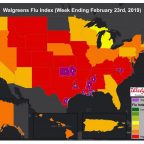Affordability, Tight Supply Cause Vacation Home Sales to Plummet in 2016; Investment Sales Climb 4.5%
Last year’s strongest pace of home sales in a decade included a sizeable drop in activity from vacation buyers and a jump from individual investors, according to an annual second-home survey released today by the National Association of Realtors®. The survey additionally found that vacation and investment buyers in 2016 were more likely to take out a mortgage and use their property as a short-term rental.
NAR’s 2017 Investment and Vacation Home Buyers Survey1, covering existing- and new-home transactions in 2016, revealed that vacation home purchases last year descended to an estimated 721,000, down 21.6 percent from 2015 (920,000) and the lowest since 2013 (717,000).
Investment-home sales in 2016 rose 4.5 percent to 1.14 million from 1.09 million in 2015. Owner-occupied purchases jumped 12.5 percent to 4.21 million last year from 3.74 million in 2015 – the highest level since 2006 (4.82 million).
Lawrence Yun, NAR chief economist, says vacation sales in 2016 tumbled for the second consecutive year and have fallen 36 percent from their recent peak high in 2014 (1.13 million). “In several markets in the South and West – the two most popular destinations for vacation buyers – home prices have soared in recent years because substantial buyer demand from strong job growth continues to outstrip the supply of homes for sale,” he said. “With fewer bargain-priced properties to choose from and a growing number of traditional buyers, finding a home for vacation purposes became more difficult and less affordable last year.”
Added Yun, “The volatility seen in the financial markets in late 2015 through the early part of last year also put a dent in sales as some affluent households with money in stocks likely refrained from buying or delayed plans until after the election.”
Tight inventory conditions pushed the median sales price of both vacation and investment homes last year to levels not seen in roughly a decade. The median vacation home price was $200,000, up 4.2 percent from 2015 ($192,000) and the highest since 2006 (also $200,000). The median investment-home sales price was $155,000, up 8.0 percent from 2015 ($143,500) and the highest since 2005 ($183,500).
With home prices steadily rising, an increasing share of second-home buyers financed their purchase last year. The share of vacation buyers who paid fully in cash diminished to 28 percent (38 percent in 2015), while cash purchases by investors decreased to 35 percent from 39 percent in 2015 and 41 percent in 2014.
“Sales to individual investors reached their highest level since 2012 (1.20 million) as investors took advantage of record low mortgage rates and recognized the sizeable demand for renting in their market as renters struggle to become homeowners,” said Yun. “The ability to generate rental income or remodel a home to put back on a market with tight inventory is giving investors increased confidence in their ability to see strong returns in their home purchase.”
Vacation sales accounted for 12 percent of all transactions in 2016, which was the lowest share since 2012 (11 percent) and down from 16 percent in 2015. The portion of investment sales remained unchanged for the third consecutive year at 19 percent, and owner-occupied purchases increased to 70 percent (65 percent in 2015).
Greater interest in short-term rentals; South most popular destination
Given the rising popularity of short-term rentals in locales throughout the country, it’s no surprise there were slightly more investment and vacation buyers renting their property for less than 30 days. Forty-four percent of investors (42 percent in 2015) and 29 percent of vacation buyers (24 percent in 2015) did or tried to rent their property last year and plan to do so in 2017. Twenty-one percent of investment buyers and 15 percent of vacation buyers did not rent their home for short-term purposes last year but plan to try it in 2017.
Vacation buyers’ typically earned $89,900 ($103,700 in 2015), while investment buyers had a household income of $82,000 ($95,800 in 2015). Both were most likely to purchase a single-family home in the South, with vacation buyers preferring a beach location and investors choosing a suburban area.
The top two reasons for buying a vacation home were to use for vacations or as a family retreat (42 percent) and for future retirement (18 percent), while investors mostly bought to generate income through renting (42 percent) and for potential price appreciation (16 percent).
NAR’s 2017 Investment and Vacation Home Buyers Survey, conducted in March 2017, surveyed a sample of households that had purchased any type of residential real estate during 2016. The survey sample was drawn from an online panel of U.S. adults monitored and maintained by an established survey research firm. A total of 2,099 qualified adults responded to the survey.
The 2017 Investment and Vacation Home Buyers Survey can be ordered by calling 800-874-6500, or online at www.realtor.org/prodser.nsf/Research. The report is free to NAR members and accredited media and costs $149.95 for non-members.
The National Association of Realtors®, “The Voice for Real Estate,” is America’s largest trade association, representing 1.2 million members involved in all aspects of the residential and commercial real estate industries.
1Vacation homes are recreational property purchased primarily for the buyer’s (or their family’s) personal use, while investment homes are residential property purchased primarily to rent to others, or to hold for other financial or investment purposes. Sales data excludes institutional investment activity.
Home sales were calculated based on a proportion of buyers who bought each respective home type—vacation, investment, and primary residence. The number of purchases for each housing type were calculated using the total number of existing home sales and new homes in 2016. To calculate the difference in the number of purchases in 2015 to 2016, the percent change of each housing type purchased was calculated.






